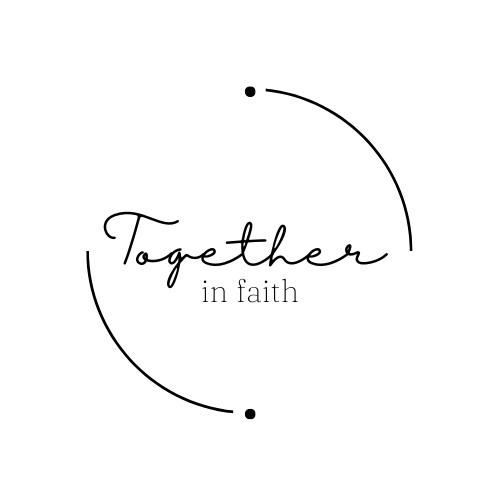
We are in the middle of Passion Week, or Holy Week. This is a unique season wherein the three Abrahamic faiths observe one of their most sacred days in their respective traditions. Maundy Thursday heralds the end of Lent, a sundown marks the beginning of Passover while a sunrise marks the celebration of Easter (Resurrection) Sunday, and Ramadan draws close to its end after the Night of Power. Read a joint essay by VICPP Faith Organizer Sheila Herlihy on how she observes Lent, our Communications Director Ayesha Gilani Taylor on how she observes Ramadan, and Engagement Director Dora Muhammad on how she observes both—a creative illustration of how we are Together in Faith!
Sheila Herlihy, VICPP Faith Organizer
In the Catholic (and broader Christian) tradition, the fasting season is called Lent. This is 40 or so days before Easter, and focuses on preparation and refocusing life on God. It coincides with forty days that Jesus spent fasting and praying in the desert before beginning his public ministry, and prepares those who observe it for the season of Easter, celebrating Jesus’ resurrection. The three main themes of Lent are prayer, fasting, and almsgiving. The practice of fasting is understood more broadly than just food-focused… some folks give up eating between meals, or chocolate. Others fast from music on their commute, television, or negative self-talk. The point is to take the attention you would focus on a mundane thing or practice and point that same attention to God.
I’m blessed to serve as the Faith Organizer for VICPP, and that my work ties so closely to my faith journey. I’ve been a Catholic all my life, so observing Lent is a part of my yearly rhythm. I’ve run the gamut of ways to pray, fast, and give alms over the years. One particularly challenging Lent, I gave up fried food. Another time, I added at least one item daily to a box that was headed to the thrift store. This year, rather than eliminating something, I’ve added a practice of a structured prayer every night, the Liturgy of the Hours, which is a prayer shared by Catholics worldwide. It helps me put the end of the day into God’s hands through the words of the psalms, which express a wide range of human emotion.
Traditionally, Catholics don’t eat meat on Fridays during Lent, but since I’m a vegetarian, I go vegan on Fridays, and eat only a small breakfast and dinner. For me, it’s helpful to have a Lenten practice that interrupts the routine. Whenever I’m hungry on Friday, or go to grab mac and cheese for dinner, I instead pause and offer a prayer. This helps ground me and reminds me to invite God into every moment. I’m looking forward to this coming week, the most sacred days of the church year, when I’ll be able to enter into worship refreshed through my fasting practice.
Ayesha Taylor, VICPP Director of Communications
Muslims are currently halfway through observing the holy month of Ramadan, during which time we fast daily from before sunrise to sunset. It’s one of the five pillars, or tenets, of Islam. In a nutshell, those pillars include declaration of faith, prayer, fasting (for healthy, of-age, non-pregnant, non-nursing people), almsgiving, and pilgrimage to Mecca (for those who are physically and financially able). Ramadan is a time to renew one’s connection to the Most High, purify the heart, and fill the soul with love and reverence of God through being more intentional about imbibing those pillars in our daily routines. Many Muslims consider this a detox of both the physical and spiritual forms.
My personal practice includes, in addition to partaking in fasting and prayer, abstaining from doing things I find enjoyable. Each year, I try to level up my commitment and add one more item to this list of no-can-dos. For some of them, I try to continue them beyond Ramadan indefinitely. In my earlier fasting years, new list items included skipping donning nail polish and listening to music. Seven Ramadans ago, my annual practice of abstaining from consuming non-halal and non-kosher meat during the holy month stuck with me beyond Ramadan and has since become my permanent practice. The past few Ramadans, I have added covering my hair with hijab to my list (which recently became my daily practice outside of Ramadan). It has been said that “some of the pious predecessors were asked, ‘Why has fasting been instituted?’” The pious responded, “‘So that the rich will taste hunger and thus will not forget the hungry,’” as relayed by 14th century Muslim scholar and sage Imam Ibn Rajab.
The Holy Quran refers to sabr (patience) and shukr (gratitude) as life’s two greatest tests. Everything we do this month centers on those two principles. Through hunger, thirst, and tiredness, we’re placed directly in the shoes of those for whom this state of being is an everyday reality. They are those who don’t have the comfort as we who choose to fast of knowing that a meal or drink is awaiting them come sundown. The experience of physically struggling is an effective reminder of God’s grace, to not take His blessings for granted, to always remain conscious of those who have less than we do and to care for them. It’s also an opportunity to shut off the outside commotion and turn inward. The time and energy normally consumed by material desires or time-wasting, unhealthy habits get swapped out to focus on taqwa, or God-consciousness. It teaches us to embody the two traits said in the Quran to be beloved by Allah, patience, and gratitude.
Dora Muhammad, VICPP Engagement Director
I grew up thinking that the patriarch of my family, my grandmother’s brother, was a priest because he was such a devout Catholic. I entered his home with very much the same awe that I did church when I was a child. I learned from him the sacred good of generosity to others, especially during Lent. My mom became a perfect example around me. Every Lenten season, she would return to our Caribbean homeland and do a “cook-up” where she prepared meals every day for a week and served people on the front of my grandmother’s property. People would come from all parts of the island to feed their hunger. She transformed conventional models of almsgiving for me as a child and ingrained it in my spiritual life.
Lent has remained a divinely inspired period to follow in their footsteps and find a unique place to serve others physically and gift to them the best of what I have and own. This practice extends into my observance of Ramadan’s daily deeds of kindness — whether it is simply helping someone out or feeding a hungry person. Charity is love, in Biblical definition. Writing a check was never sufficient, though my great-uncle and mother both did that as benefactors of an all-girls school adjacent to my grandmother’s house — also a legacy I continued as the next generation of benefactors for the school. However, giving entailed giving of my touch and time to others, looking into their eyes and affirming their humanity, their presence in the world.
Fasting in observance of both holy periods goes well beyond abstaining from food for me. The Lenten season of fasting is framed for me by the remembrance that Jesus resisted temptation while he fasted for 40 days in the desert. The Ramadan season of fasting is framed for me by the remembrance of the 23 years of the revelation of the Holy Qur’an and the patience and resolve of the Muslim community in that evolution of their faith. That puts a spiritual context on the practice of eating no meat on Fridays during Lent or no meat at all during Ramadan, because meat represents our flesh in the spiritual realm. Fasting reinforces my vow of chastity as a girl and commitment to continue to carry the principles of chastity into my life as a wife. The personal discipline of fasting broadens to encompass the spiritual benefits and beauty of exercising self-control over my body, its cravings, its urges. The ultimate principle of this holy season is a grounding of my intentional purification on all levels — physical, mental, spiritual, and emotional — necessary to live with God as my center.
Learn more about VICPP’s Together in Faith project in Prince William County:
Together in Faith – Prince William County Holy Days Highlights
